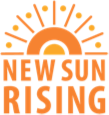 A mom recently contacted me asking “What is the best class to sign my child up for to learn to code?”
A mom recently contacted me asking “What is the best class to sign my child up for to learn to code?”
The questions followed on the tail of the incredible Code.org sponsored event “Hour of Code.” We had a blast at Baden Academy, filming teachers and students celebrating laughing angry birds, skating Elsa’s, and snail monsters.
Parents and teachers learned the startling statistics

We were also forced to ask some immediate questions about why this needed skill for successful employed citizens is not in the common core and half the states in the US don’t offer credit for graduation for computer science classes. Those changes are coming, but not in this precious window of our many of our kid’s educations.
So it is up to us, parents, afterschool providers, teachers willing to sponsor contests and games to teach common core and coding. [Sheryl Wudunn speaks of parents taking at least 4% of their discretionary income to supplement state and federal education programs as a necessity for our children to thrive).
So what is important to look for?
#1 Meaningful
I put this first, you may not. I’ve found that long term motivation in learning stems from contributing something meaningful to the world. One of my college students said, upon learning a little wikicode and editing Wikipedia for an assignment, “The was the first assignment that made me feel like I did it with an actual purpose.”
#2 The Goldilocks factor
– not too difficult, not too easy, with enough level ups to keep them interested.
Why are they giving up? (and they will give up! Coding is fun, it is also hard). Ask them. Was it too easy? Was it too hard? Did they not have enough help? Have they no yet developed the tenacity, mindset and resolve to stay at a problem until they’ve worked through a solution?
#4 Good FAQ and help resources
Learning tech is learning problem solving. Learning tech in the 21st century is collaborating with people around the globe who are facing the same problems. So, #4 is to seek out learning environments where there are lots of tutorials and helps, but not so many that you can just follow someone’s example and not have to think through the problem yourself.
I know what you’re thinking, “Ellen, you forgot #3 – the all-important #3 – the first unique prime number, the number Pythagoras called noblest of all digits, a reminder of the three gifts brought to the Christ child for Christmas!”
#3 Opportunity to be Creative!
The all important #3 is gift, a gift of self, a gift of our unique ability to create and be creative. Does the class or opportunity to code help them put something unique out that is their own creation. Does it allow them to be creative? If all the are learning is how to draw a red circle on a blank screen, it has to be able to be made uniquely their red circle. Does their programmed maze game express their personality? Is it different from the 500 other kids who completed the tutorial this week.
That being said – here are my top 3 choices for elementary/middle school beginners and middle school/high school experienced coders…
#1 Meaning based, Incremental Levels, Coach Support, Collaborative!
Grow a Generation’s Scratch Animator Black Belt Series or Grow a Generation Sponsored Contest
Why Scratch? MIT is working hard to keep software cutting edge, HARVARD is assembling and creating awesome educational resources. It is easy entry for the beginner. In addition to learning to code you learn concepts in graphics, music, storytelling, game making, and collaborative new world of open source networking. Finally, it interfaces with robotics and the outside world with Lego WeDo, Microsoft Kinect, and the programmable computer circuit boards of Hummingbird 2, Raspberry Pi and Arduino.
#2 Incremental Levels, FAQ Support, structured for completion of goals
For younger (Prek – 5th) Code.org
All those great Hour of Code games have been combined into a comprehensive 20 hours of code instruction. Get those pigs!
For older (5th-12th grade) Take one of the courses listed below
Robot Virtual Worlds: Tis the season of FIRST Tech Challenge or VEX competitions. The CMU Robot Virtual Worlds help you learn Robot C while programming your robot to compete in some pretty incredible international robotics programs. Join (or start) a team and learn to code in RobotC!
Intro to Java, HTML, or Python (free online options similar to what you would get in a middle or high school offering a one semester class). These are hard to motivate a student (who is not self-motivated) to complete, yet great substitutes when your school district has no offerings.
Khan Academy
Codecademy
CodeHS
CodeAvengers
CodeCombat ($$)
College Level courses that are free or VERY inexpensive with extraordinary professors can be found through EdX, Udacity, and Coursera. I can’t recommend these enough!!! (taking two or three myself each semester). For students who have completed Algebra 2 and some intro classes to programming.
# 3 Community Based with potential for Leadership Opportunities
For younger – find a class!
Locally, search Hi-Tech Learning, GreenE Academy, iD Tech Camps and the Stemisphere.
For older – is it time to take that idea to the next level?
Many of the older kids I’ve worked with have created the same beginnings of the same game in multiple languages. Find the language that creates the app, the game, the program you dream about then go deep. Find a mentor and build your prototype! Finish that crazy project that is just for you and your friends. It will shout out from your resume to make you unique!
Feel free to call with inquiries, and add to comments below your ideas.



